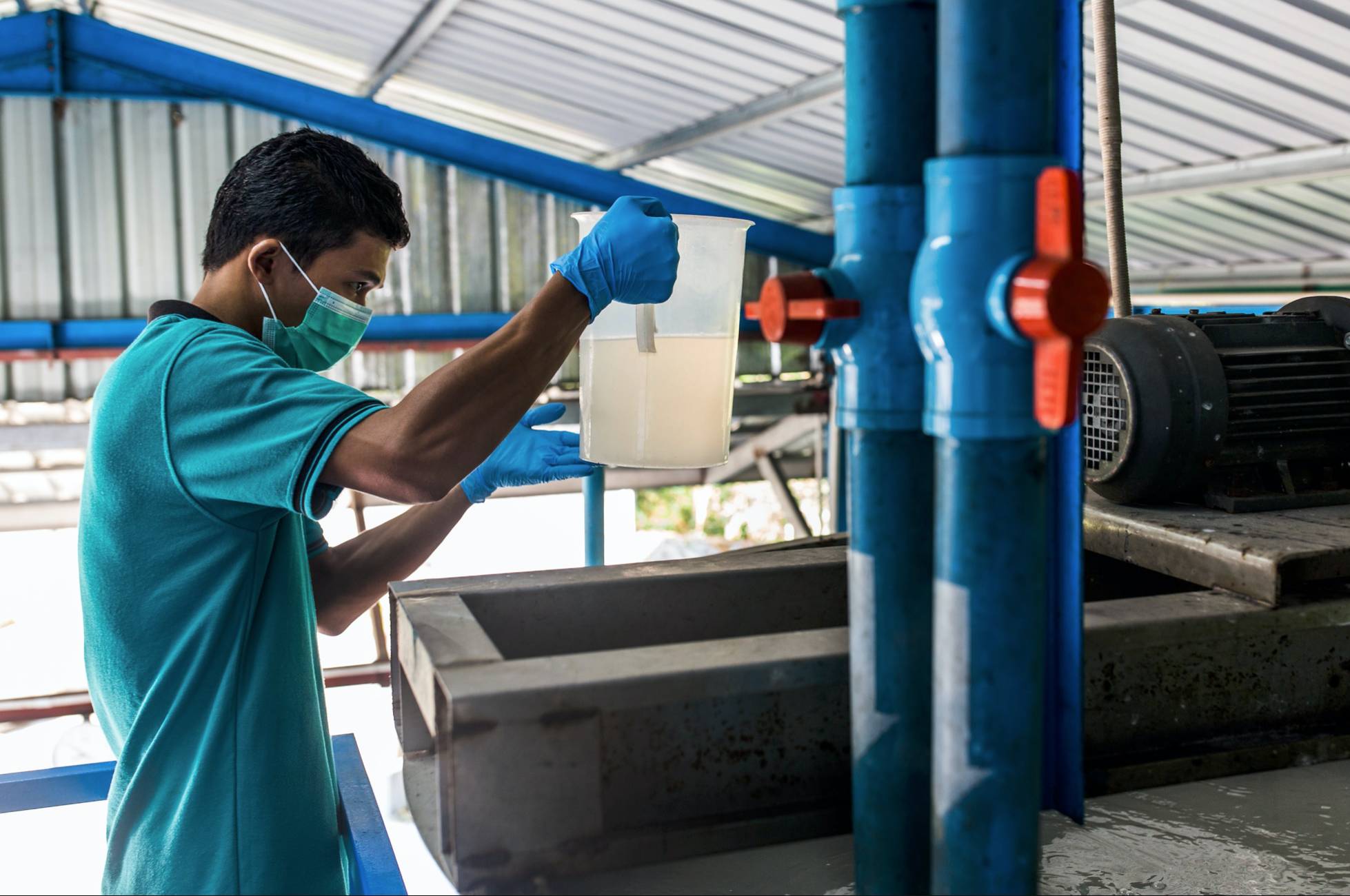
Healthy rivers are vital to human existence, and in few places does that truth hold more gravity than in Myanmar, where 34 million people live in the basin of the Ayeyarwady River. The Ayeyarwady feeds the nation with fish, irrigates its fertile land, provides transport and drinking water to millions.
Even though a regulatory framework exists, a lack of law enforcement and adequate infrastructure means that every day, tons of industrial wastewater ends up in Myanmar’s rivers.
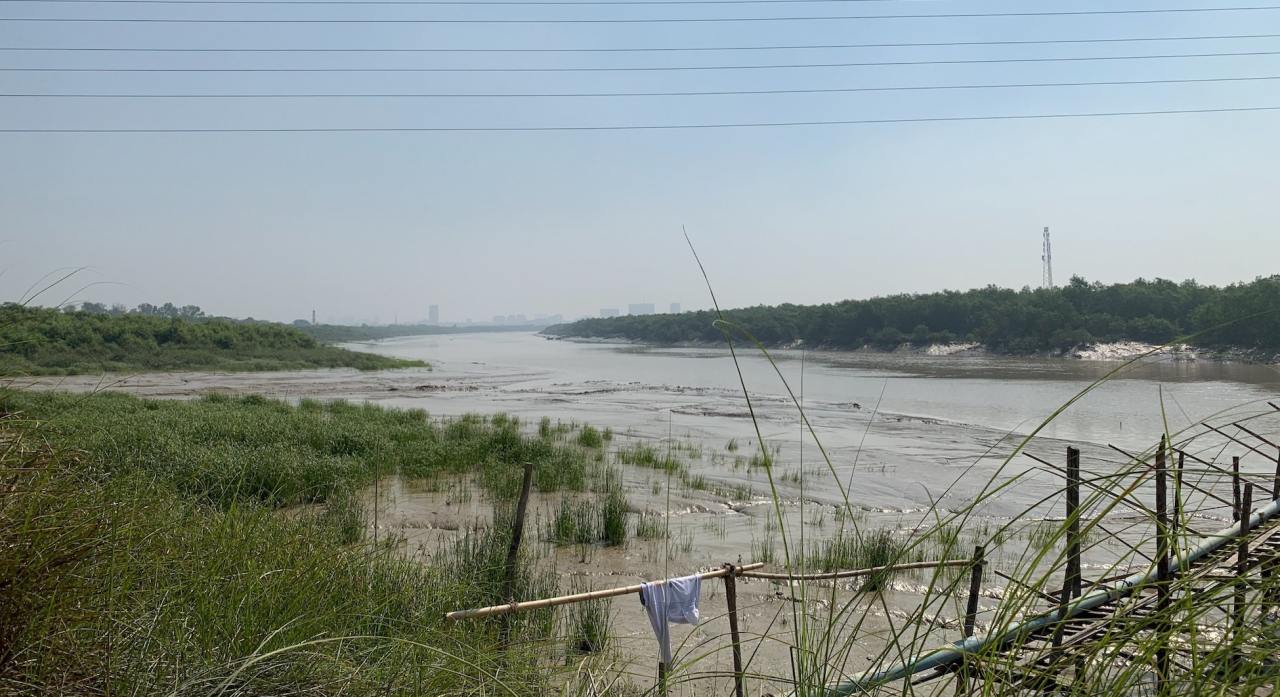
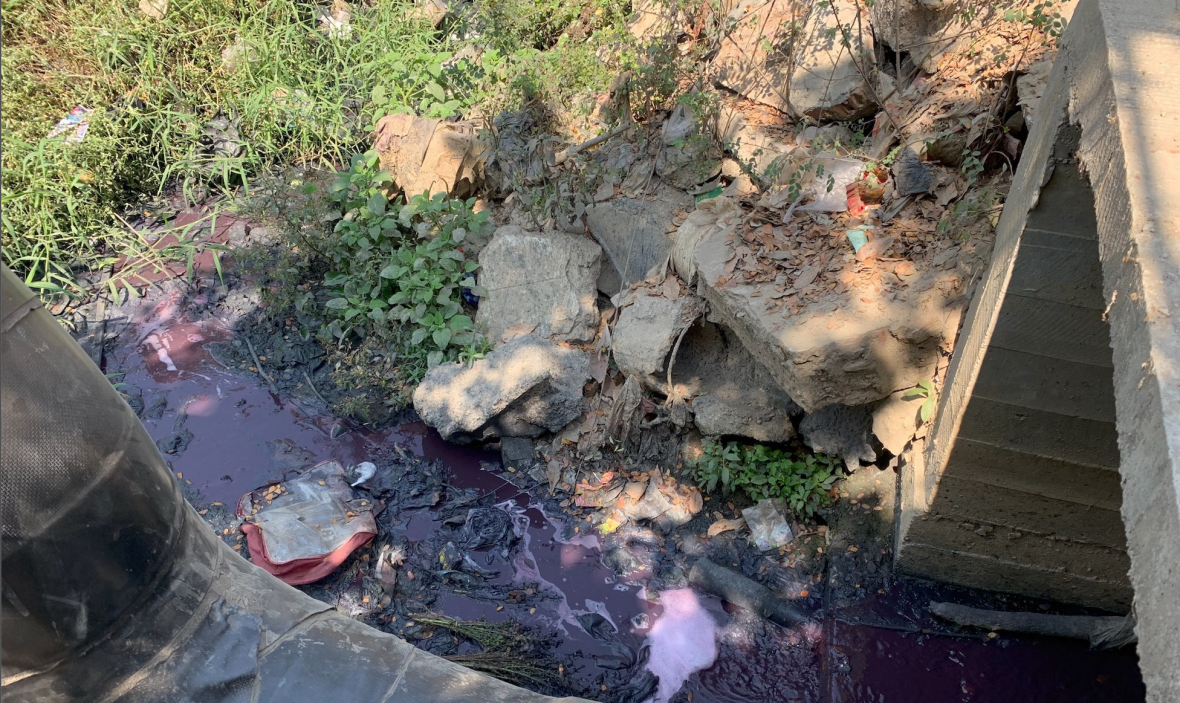
WASTEWATER?
It's exactly what it sounds like - water that is a byproduct of human activities. It comes in many forms, from domestic (like the water in the drain after a shower) to industrial, agricultural and commercial. Wastewater can contain any number of different pollutants from hazardous chemicals, metals or oils, to human or animal waste and even bacteria and viruses. Globally only 80% of wastewater is properly treated before being released into the environment. This has an enormous impact on ecosystems and can even put human health at risk.
Less than 5 percent of Myanmar's industries have functioning wastewater treatment systems. The Food & Beverages (F&B) sector, one of the country’s biggest industries, contributes significantly to this issue. If chemical-laden wastewater is properly treated before it enters our waterways, the environmental consequences can be mitigated.
The EU funded SWITCH-Asia Tha Bar Wa is a four year project implemented by the World Wide Fund for Nature (WWF), Myanmar Food Processors and Exporters Association (MFPEA) and German Sparkassenstiftung for International Cooperation(DSIK). The project promotes cleaner production in Myanmar’s growing F&B sector, specifically in the small and medium-size enterprises. The name “Tha Bar Wa” expresses a commitment to nature and the resources utilised by companies.
Since its launch in 2018, Tha Bar Wa has been working with SMEs from seven sub-sectors of the F&B industry from three regions – Yangon, Mandalay and Ayeyarwady. The project has conducted factory assessment on wastewater management in 24 SMEs and energy management in19 SMEs. It has also developed and provided 11 design packages of wastewater treatment plants (WWTP) and seven factories have implemented and installed WWTP.
In 2021, a dedicated portal was also created with the objective to provide information on green and clean production practices.
Take the WALCO dairy factory in Yangon, for example. Founded by Dr Khin Hlaing, this factory in the north of the city now operates an efficient wastewater treatment system, which has considerably reduced its impact on Myanmar’s rivers. Dr Khin Hlaing worked with WWF-Myanmar after realising that if he was to expand his business, he needed to put in place a reliable wastewater treatment system.
WATCH THE VIDEO
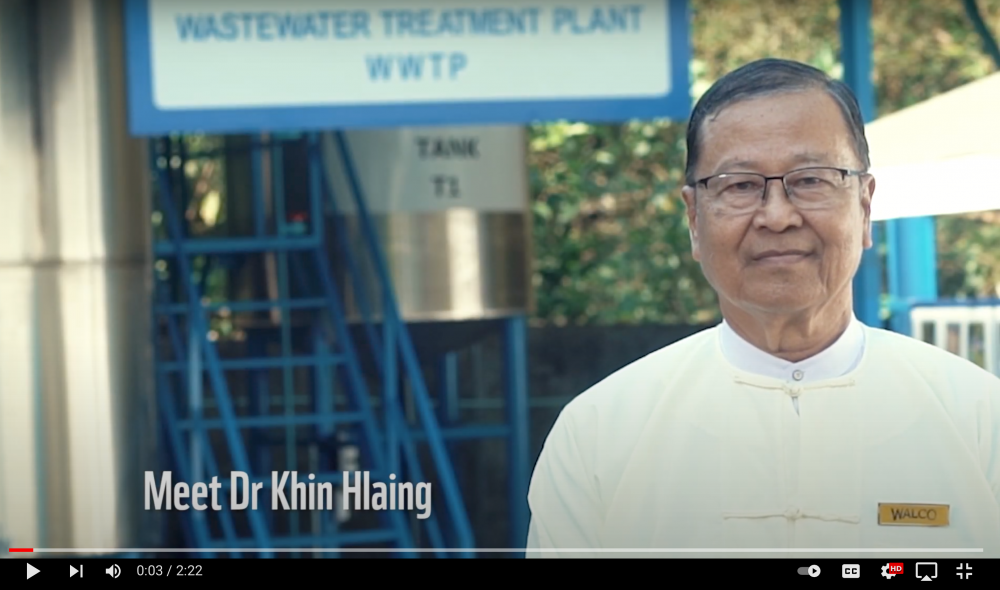
Making rice mills more energy efficient
As part of Tha Bar Wa’s Freshwater programme, between 2nd and 13th December 2021, energy efficiency assessments of four rice mills were conducted in the Bago Region, in southern central Myanmar. Three national consultants carried out the assessments in Waw and Thanatpin townships. Read more about the assessment trip here.
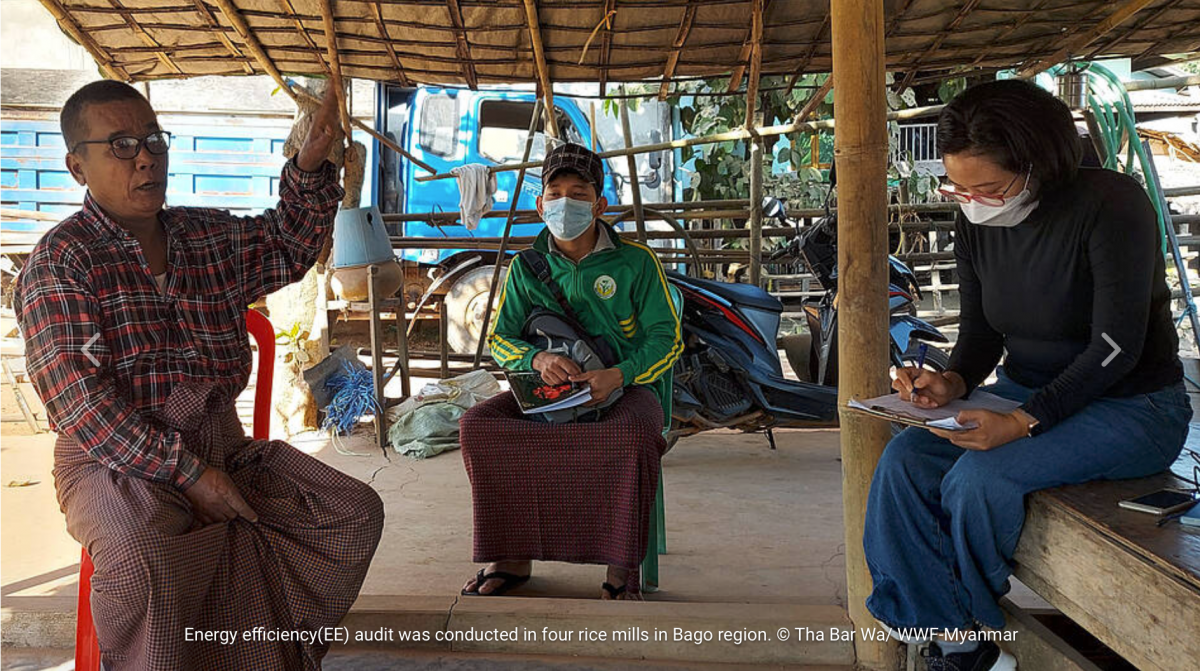
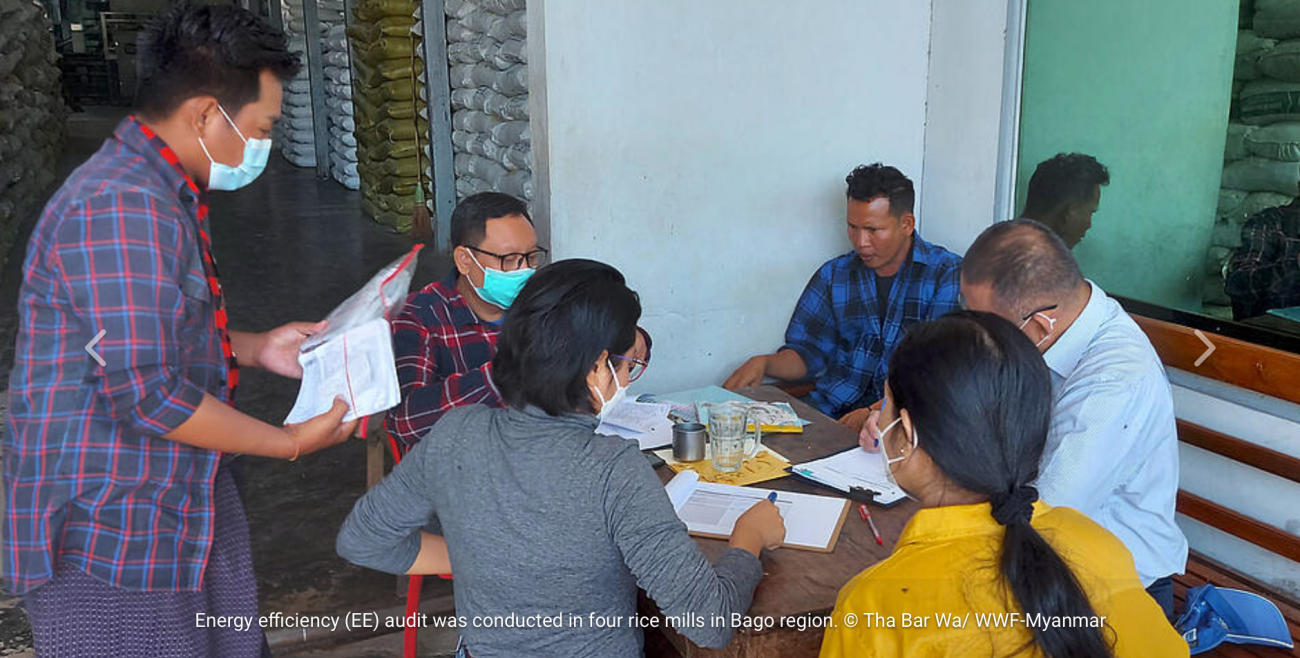
Increasing sustainable production
On 17th December 2021, 22 food-and-beverage businesses from Mandalay, northern central Myanmar, joined an online workshop introducing sustainable production concepts. Held in partnership with the Mandalay Chamber of Commerce and the Myanmar Food Exporter and Processor Association, experts from the Tha Bar Wa project team delivered the workshop and answered questions related to emission guidelines, energy efficiency audits and project periods. Read more here.
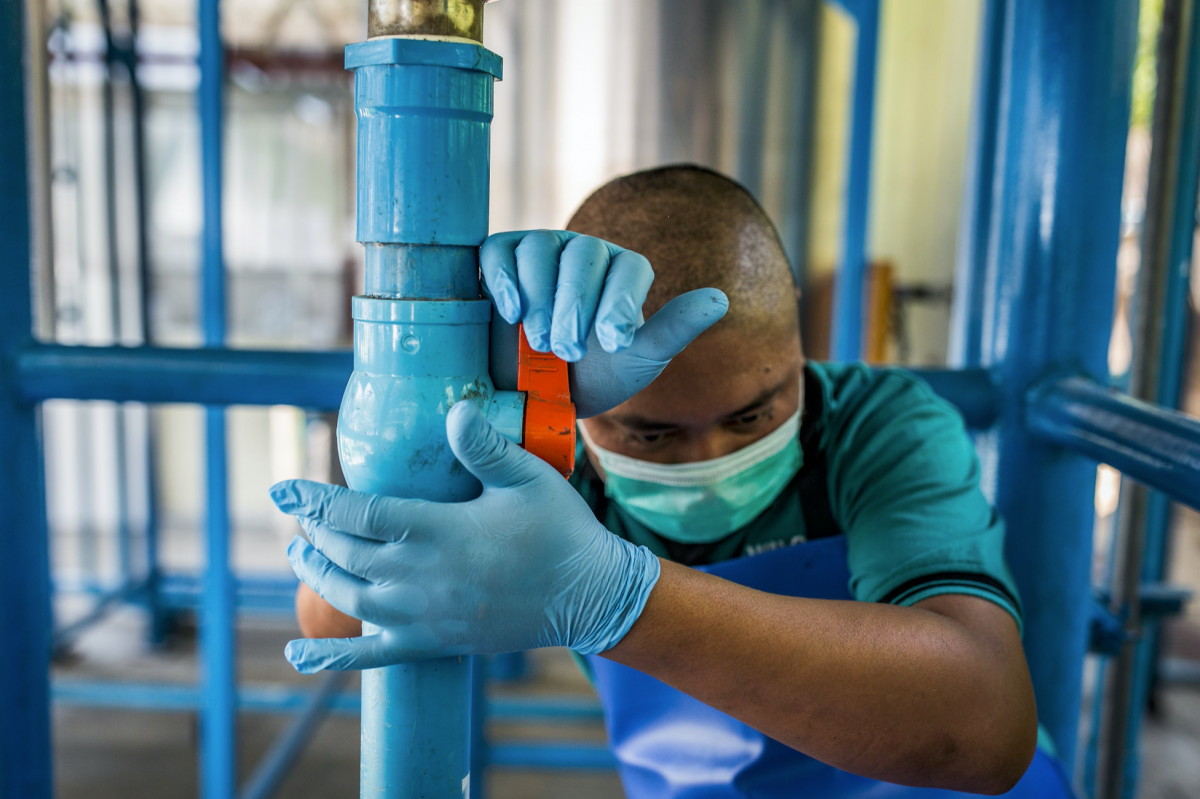
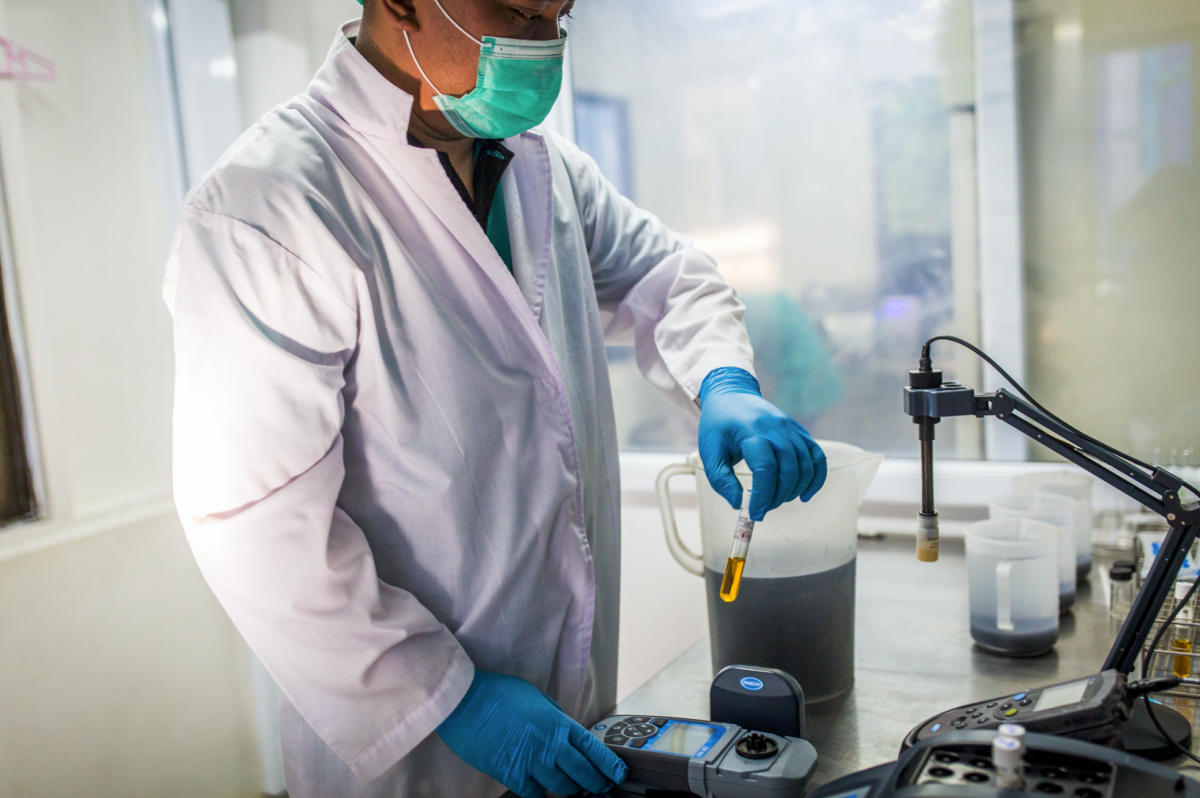
Related Stories
- Tha Bar Wa collaborates with MRCCI and MFPEA; introduces sustainable production to F&B businesses in Mandalay via online workshop
- To support sustainable production practices, Tha Bar Wa conducted energy efficiency assessments of rice mills in Bago region
- Tha Bar Wa Project collaborates with Small and Medium Enterprises Development Department and Responsible Business Fund (RBF)
- Tha Bar Wa continues in-depth energy efficiency virtual trainings for rice millers, in collaboration with Helvetas
- Despite COVID-19 restrictions, Tha Bar Wa continues support on energy efficiency to Rice Millers
- Six F&B factories in Mandalay receive Energy Efficiency Audits by Tha Bar Wa
- Clean water is our defence against COVID-19 and other serious, water-borne endemic diseases
- Making wastewater treatment plants possible
- One Factory at a time: Reducing river pollution in Myanmar
Photo credits:
© SWITCH-Asia Tha Bar Wa / WWF-Myanmar


